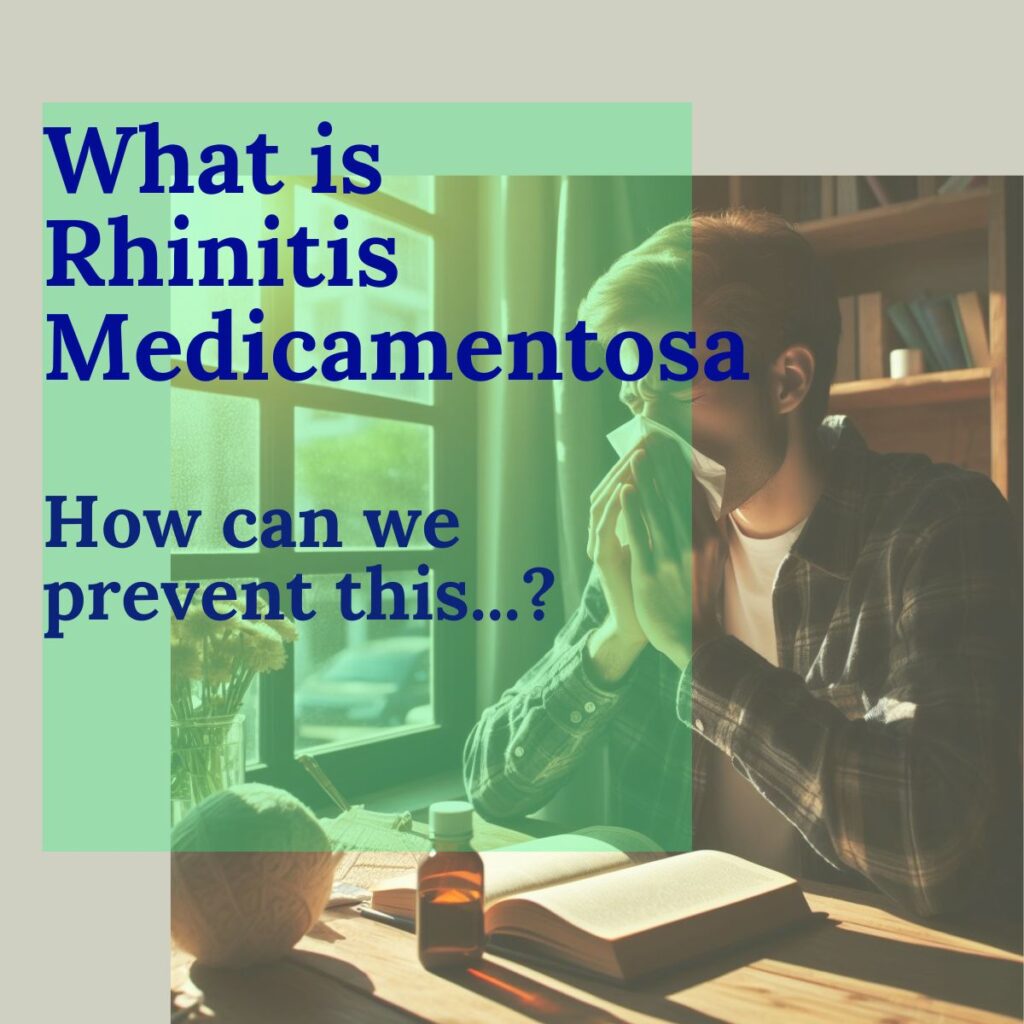WHAT IS RHINITIS MEDICAMENTOSA? HOW CAN WE PREVENT IT?

Rhinitis Medicamentosa is a condition that arises as a result of overusing nasal
decongestant medications, causing a rebound effect that leads to persistent nasal
congestion. While these medications are initially intended to provide relief from nasal
congestion, their misuse can paradoxically worsen the symptoms and create a cycle of
dependence.
The Cause:
Nasal decongestant sprays, containing active ingredients like oxymetazoline or
phenylephrine, are commonly used to relieve nasal congestion associated with allergies,
colds, or sinusitis. However, when these medications are used for an extended period beyond their recommended duration (usually three to four consecutive days), they can lead
to a phenomenon known as rhinitis medicamentosa.
The Rebound Effect:
One of the primary reasons behind rhinitis medicamentosa is the rebound effect. Nasal decongestants work by constricting blood vessels in the nasal passages, reducing swelling
and congestion. Prolonged use, however, causes the blood vessels to become desensitized
to the medication’s effects, leading to a rebound increase in congestion when the medication
is discontinued.
Symptoms:
Individuals experiencing rhinitis medicamentosa may notice worsening nasal congestion,
difficulty breathing through the nose, and a feeling of nasal stuffiness that persists even
when not using the decongestant spray. In severe cases, it can impact sleep, quality of life,
and overall well-being.
How to prevent:
Preventing rhinitis medicamentosa primarily involves responsible and cautious use of nasal
decongestant medications. Firstly, it is crucial to strictly adhere to the recommended dosage
and duration of use as provided by healthcare professionals or indicated on the medication packaging. Nasal decongestants are typically intended for short-term relief, usually three to
four consecutive days. Using them beyond this period increases the risk of developing
rhinitis medicamentosa due to the desensitization of nasal blood vessels.
Secondly, individuals prone to nasal congestion should explore alternative treatments and
consult healthcare providers for personalized advice. Saline nasal sprays, antihistamines,
and corticosteroid nasal sprays are potential alternatives that can offer relief without the risk
of rebound congestion. Developing a proactive approach to managing nasal congestion,
including identifying and addressing underlying causes, can reduce the reliance on
decongestant sprays and mitigate the chances of developing rhinitis medicamentosa. By adopting these preventive measures and seeking professional guidance, individuals can
strike a balance between effective relief and avoiding the side effects associated with the
overuse of nasal decongestants.
✍️Ubaidulla K M
MPharm
Pharmacy Blogger




